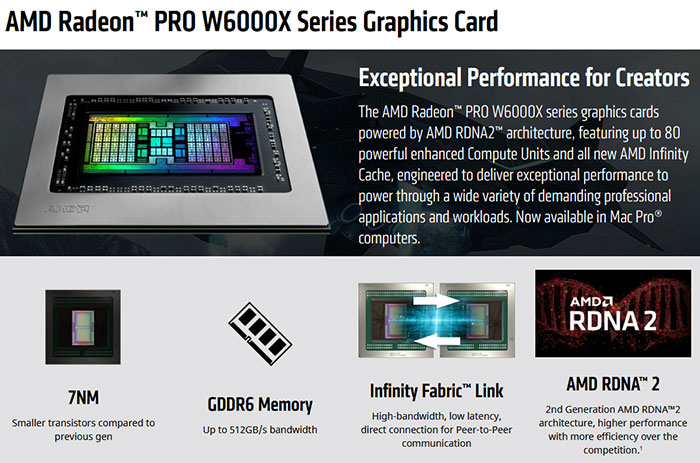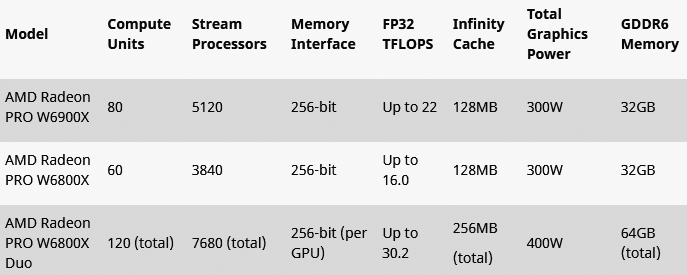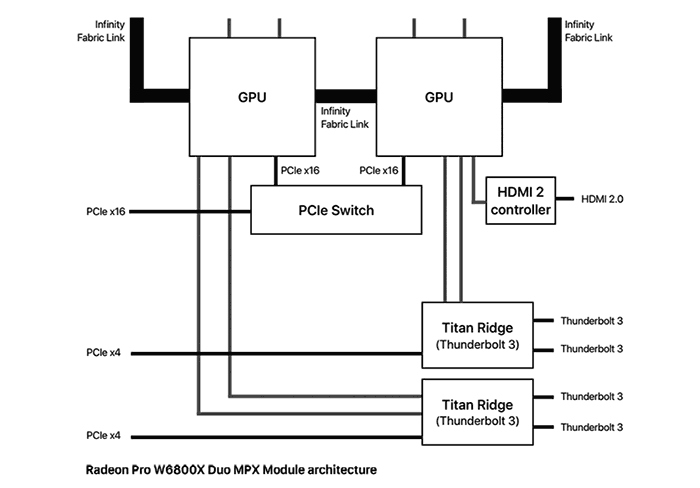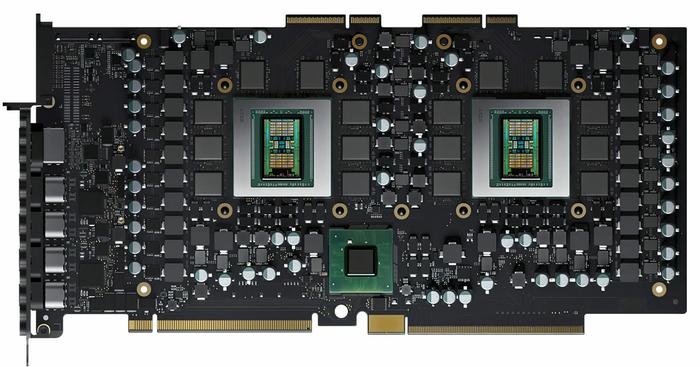Apple is updating (PDF link) its Intel CPU-based Mac Pro line of computers with new high-end GPU upgrade options. The extra graphical grunt comes to these workstation machines, usually dedicated to graphics- and compute-intensive apps, courtesy of the new AMD Radeon PRO W6000X Series GPUs. Specifically, Apple is offering a trio of RDNA2 architecture GPU graphics card configuration options – with the top option being a dual-GPU card with at total of 120CUs and 64GB of GDDR6 memory.

The new AMD Radeon Pro W6000X series graphics cards are all based upon Navi 21 silicon – as used by the consumer-facing Radeon RX 6800, RX 6800 XT and RX 6900 XT. Previously, Mac Pro 'MPX Module' upgrades plateaued at the Radeon Pro W5700X (a version of the RX 5700 XT). Apple's entry level MPX module is the AMD Radeon Pro 580X (Polaris) and currently described as "perfect for non-GPU-intensive applications".

Above, you can see the tech specs of the new trio of graphics card options available to Apple Mac Pro users / buyers. The most interesting top-end card, AMD's Radeon Pro W6800X Duo MPX Module, is a multi-GPU solution with up to 30.2 teraflops of FP32 compute and 60.4 teraflops of FP16 performance. The dual GPUs are connected to each other onboard using Infinity Fabric Link.

Some of Apple's tests suggest this graphics card can deliver up to 84 per cent gains in Octane X rendering, up to 26 per cent better performance in Cinema 4D, and up to 23 per cent improved performance in DaVinci Resolve.
All three of the new graphics card options for Apple Mac Pro include Thunderbolt 3 ports, as well as HDMI 2, and Infinity Fabric Link (up to 5x faster than PCIe) for systems commanding up to four GPUs.

It will cost you $2,400 extra to configure a new Mac Pro with the Radeon Pro W6800X, $4,600 for the W6800X Duo, and $5,600 for the W6900X. Multiple MPX module options are available too, costing $9,600 for two Radeon Pro W6800X Duos, or $11,600 for two W6900X MPX modules.
We don't expect any further Apple Mac Pro updates this year. Next year, the system should be moving to Apple Silicon.














